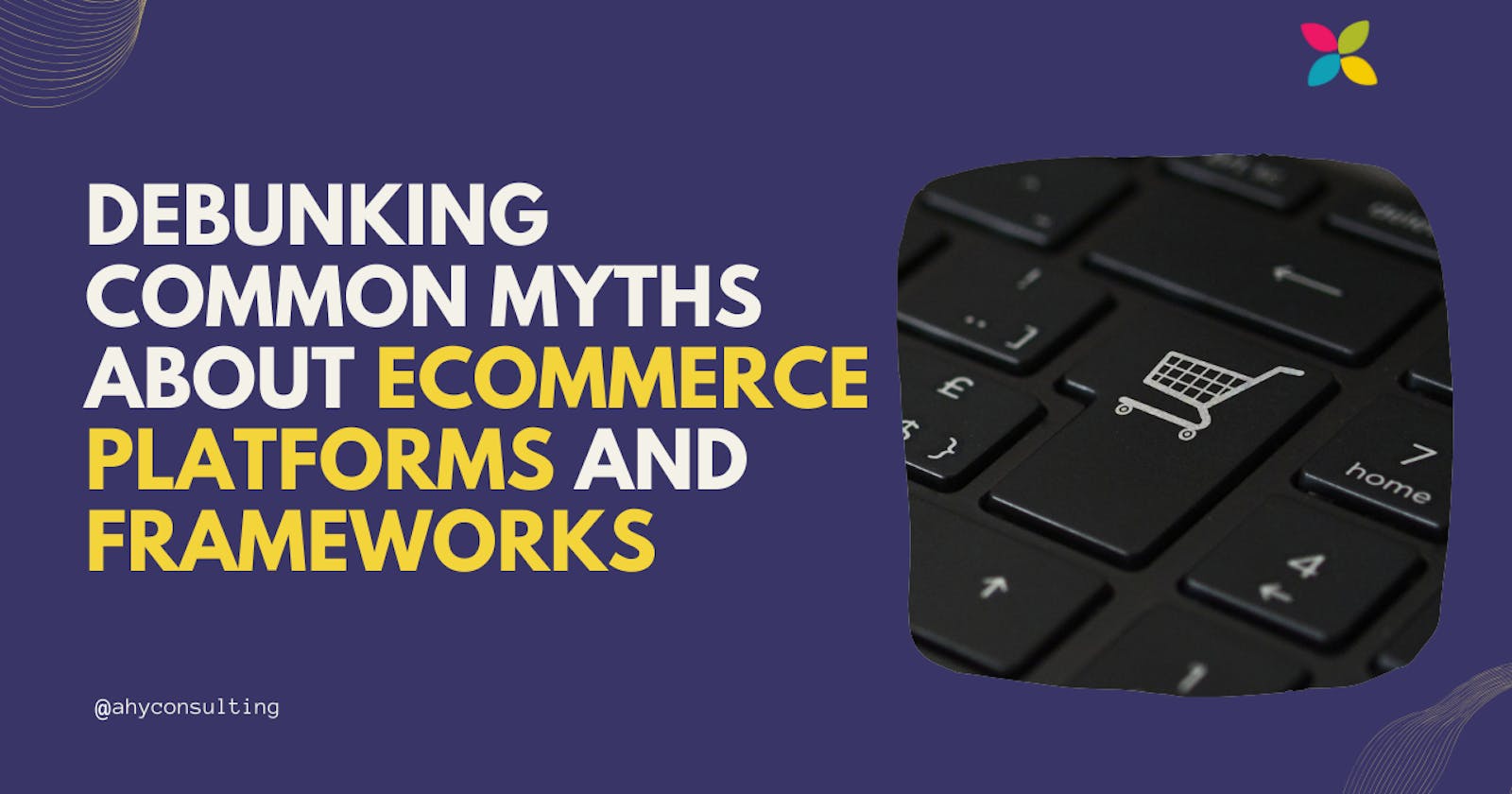Debunking Common Myths About eCommerce Platforms and Frameworks
Separating Fact from Fiction: Navigating the Realities of eCommerce Platforms
In the ever-evolving world of online retail, misconceptions about eCommerce platforms and frameworks are commonplace. These myths can lead to poor decision-making and missed opportunities for businesses. It's essential to debunk these myths to make informed choices about the digital tools that power online stores. Let’s explore and dispel some of the common myths surrounding eCommerce platforms and frameworks.
Myth 1: One Size Fits All
Reality: The notion that a single eCommerce platform or framework can suit all types of businesses is misleading. Each platform comes with its own set of features, scalability options, and customization capabilities. The right choice depends on various factors including business size, budget, technical expertise, and specific business needs.
Myth 2: The Most Popular Platform is Always the Best Choice
Reality: While popular platforms like Shopify or Magento have their advantages, they might not always be the best fit for every business. Factors such as the unique needs of your business, the specific features you require, and the level of customization you need should guide your choice, rather than just popularity.
Myth 3: eCommerce Platforms Limit Creativity
Reality: Many believe that using an eCommerce platform limits creative freedom in design and functionality. However, most platforms offer a range of customization options. With the right development skills, businesses can create a unique and tailored online presence.
Myth 4: Transitioning to a New Platform is Too Risky
Reality: Transitioning to a new platform can be daunting, but it's not necessarily risky if planned and executed correctly. It's often a necessary step for growth. Proper data migration, SEO preservation, and user testing can ensure a smooth transition.
Myth 5: Higher Price Equals Better Quality
Reality: A higher-priced platform doesn’t always guarantee superior quality or suitability for your business. It's crucial to evaluate the features and support offered by the platform and weigh them against its cost to determine its value for your specific needs.
Myth 6: Open-Source Platforms are Always Free
Reality: While open-source platforms like WooCommerce or Magento Open Source are free to download and use, there are costs associated with hosting, security, maintenance, and customization. These costs can add up, making it important to budget accordingly.
Myth 7: You Need Extensive Coding Knowledge to Manage an eCommerce Site
Reality: Many modern eCommerce platforms are designed to be user-friendly, with intuitive interfaces that don’t require extensive coding knowledge. However, for more complex customizations and maintenance, technical expertise may be needed.
Conclusion
Understanding the truths behind these common myths is vital for choosing the right eCommerce platform or framework. It's about finding the balance between your business needs, budget, and technical capabilities. Making an informed decision in this regard is crucial for the long-term success of your online business.

